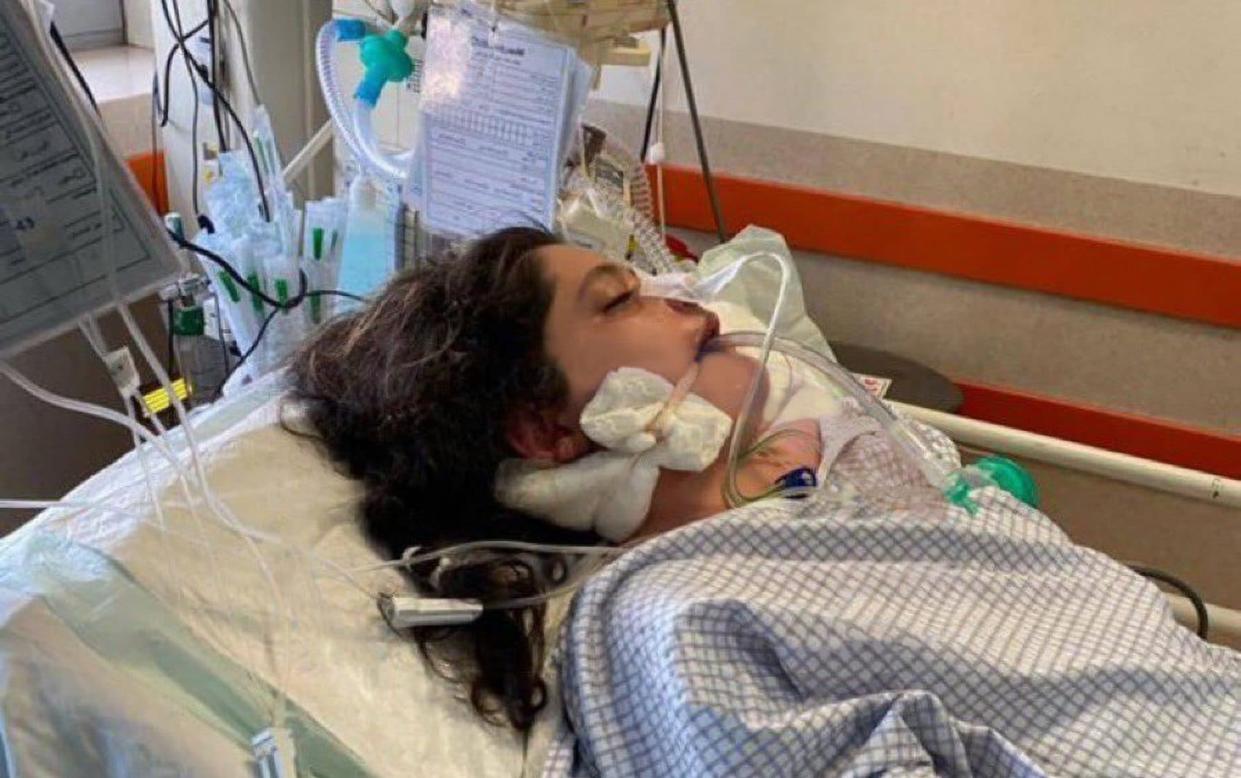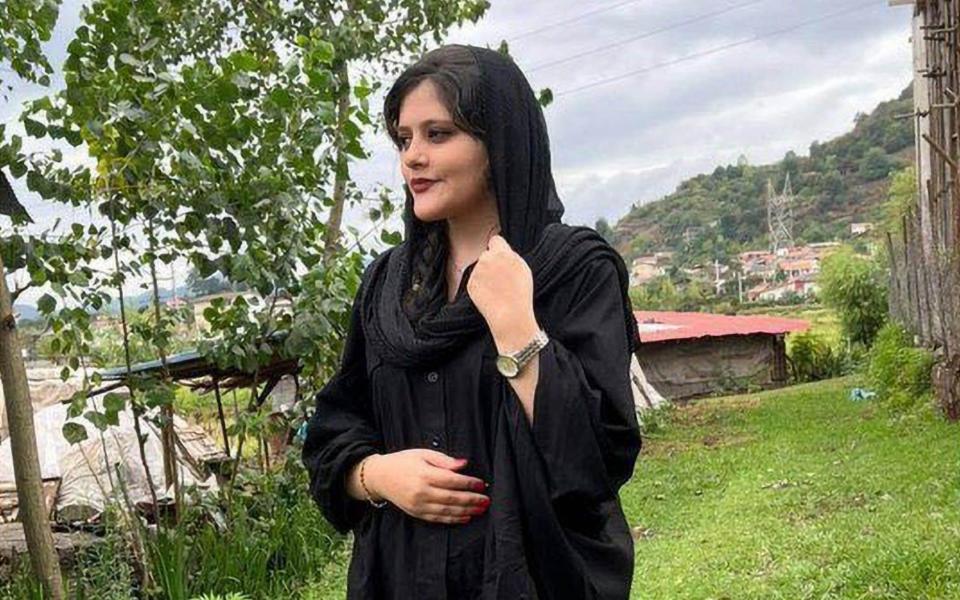Iranian woman dies after beating by ‘morality police’ for not wearing headscarf

A 22-year-old Iranian woman has died after she was beaten by Iran’s “morality police” for not wearing a headscarf, according to eyewitnesses, in a case that has shocked the country.
Mahsa Amini was taken inside a police van and allegedly attacked by Iran’s Guardian Patrols, known also as morality police, and slipped into a coma shortly afterward. Iranian media reported on Friday evening that she had died of her injuries.
Wearing a headscarf is compulsory in the Islamic Republic, and those caught without one risk being imprisoned for up to two months and fined.
Iranian police deny beating the woman and have instead claimed that she fell ill from a “heart problem,” which the family denies, pointing out she had no pre-existing medical conditions.
Video footage has surfaced online which appears to show the morality police dragging the woman to the ground and taking her away.

In response to the attack, horrified Iranians have been tweeting with the hashtag “Murder Patrol.” Others angrily pointed out that Ali Khamenei, Iran’s Supreme Leader, once gave a speech, which has since resurfaced and gone viral, in which he defends the morality police and says women who dress immodestly should be punished.
Ms Amini’s brother, Kiaresh, told the Iran Wire news website that he went to collect her from the police station after learning of her arrest, but instead she was put into an ambulance.
“There were only two hours between her arrest and being taken to hospital,” he said.
“I have nothing to lose. I will not let this end without making a noise,” he added, in unusually frank comments for citizens of Iran, who are under constant surveillance and often fear speaking out against the regime.
However, Tehran police in a statement insisted that Ms Amini was merely taken to the police station for “explanation and instruction.”
“She suddenly suffered a heart problem while in the company of other guided people... she was immediately taken to the hospital with the cooperation of police and emergency services,” the statement said.
Crackdown on failure to wear hijab
The incident is likely to exacerbate already fragile relations between the people of Iran and its ruling elite, amid crippling western sanctions and sporadic mass protests against the regime.
Among those expressing their shock and disgust online was Nazanin Boniadi, a British-Iranian actress and activist. “How many innocent young lives must be brutally robbed before we all rise?” she wrote in a post on Twitter.
The hijab has been compulsory for women since the 1979 Islamic revolution and some have tried to protest against the rule by removing their veils in public places.
But such protests carry risks. Sepideh Rashno, a young Iranian woman, briefly vanished in July after she had a row with a woman on a bus who accused her of removing her headscarf.
She then resurfaced on state TV to issue what activists say was a forced confession, having been detained for more than a month by the Revolutionary Guards.
Activists in Iran say there has been an intensified crackdown on people not wearing the hijab in recent weeks as part of a wider assault on Iranian civil society. This includes mass arrests over the summer of members of the Baha’i faith, with Iranian forces bulldozing their homes and forcing some suspects to wear electronic bracelets.
Iran is trying to lift the sanctions in talks with Western leaders on reviving the Obama-era nuclear deal, in return for curbing their nuclear programme. But after more than 18 months of stalled talks, both sides seem pessimistic about the prospect of a deal.
Western leaders are also concerned that Iran has started supporting Vladimir Putin’s invasion of Ukraine by supplying drones, of which some have already been shot down by Iranian forces.

 Yahoo News
Yahoo News 
